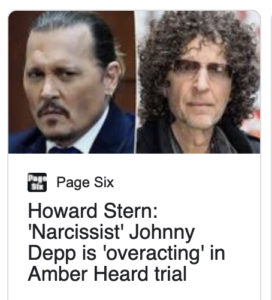Editorial Cartoonists Ted Rall (from the Left) and Scott Stantis (from the Right) take a slight detour away from breaking news to discuss crucial issues flying under the radar. But first they contextualize the blockbuster $787 million settlement between Fox News and Dominion Voting Systems. Does this mean the beginning of the end for Fox News, or does it just confirm what we all knew Fox was? Next, Ted and Scott discuss their own Post-Traumatic Stress Disorder following high-profile controversies in their careers. Inspired by recent revelations by actress and comedian Kathy Griffin,in her struggles with PTSD, following fallout from her own controversial holding up a bloody Donald Trump mask in 2017. Finally, Scott and Ted delve into the horrid state of the American prison system, following an award to thousands of New Yorkers who were wrongly held in solitary confinement in local jails. They discuss the ghastly conditions and abuses now commonplace in prisons across the country, from malnutrition to grossly overcrowded prison cells. Ted and Scott sound the alarm on an inhumane system right here in the home of the brave. Will anyone listen?
Watch the Video Version of the DMZ America Podcast:
DMZ America Podcast Ep 98 Sec 1: Fox News Settles with Dominion Voting Systems
DMZ America Podcast Ep 98 Sec 2: It’s Not Just Kathy Griffin. We Have PTSD Too.
DMZ America Podcast Ep 98 Sec 3: The Horrid State of Our Prisons



 In July 2015 a LA Times reporter informed me that the officer had secretly audiotaped my arrest, that the LAPD (actually, it was Police Chief Charlie Beck, see below) had given the Times (actually, to publisher Austin Beutner, see below) the tape and that the tape showed I had lied about being handcuffed and mistreated by the cop in a 2015 blog that was posted with a cartoon that I did for the Times about an LAPD jaywalking crackdown.
In July 2015 a LA Times reporter informed me that the officer had secretly audiotaped my arrest, that the LAPD (actually, it was Police Chief Charlie Beck, see below) had given the Times (actually, to publisher Austin Beutner, see below) the tape and that the tape showed I had lied about being handcuffed and mistreated by the cop in a 2015 blog that was posted with a cartoon that I did for the Times about an LAPD jaywalking crackdown. California’s anti-SLAPP (strategic lawsuit against public participation) law was designed to stop individuals and whistleblowers from being slammed by big corporations like real estate developers out to crush community activists by tying them up in court with frivolous defamation claims. After I sued the Times, Kelli Sager—a high-powered $715/hour attorney employed by such reputable enterprises as the National Enquirer to fend off legitimate libel lawsuits—hit me, a fired $300/week cartoonist, with an anti-SLAPP motion alleging that I was using my power and influence to deprive the Times of its First Amendment free speech rights. The Times is currently owned by Dr. Pat Soon-Shiong, who is reportedly worth
California’s anti-SLAPP (strategic lawsuit against public participation) law was designed to stop individuals and whistleblowers from being slammed by big corporations like real estate developers out to crush community activists by tying them up in court with frivolous defamation claims. After I sued the Times, Kelli Sager—a high-powered $715/hour attorney employed by such reputable enterprises as the National Enquirer to fend off legitimate libel lawsuits—hit me, a fired $300/week cartoonist, with an anti-SLAPP motion alleging that I was using my power and influence to deprive the Times of its First Amendment free speech rights. The Times is currently owned by Dr. Pat Soon-Shiong, who is reportedly worth